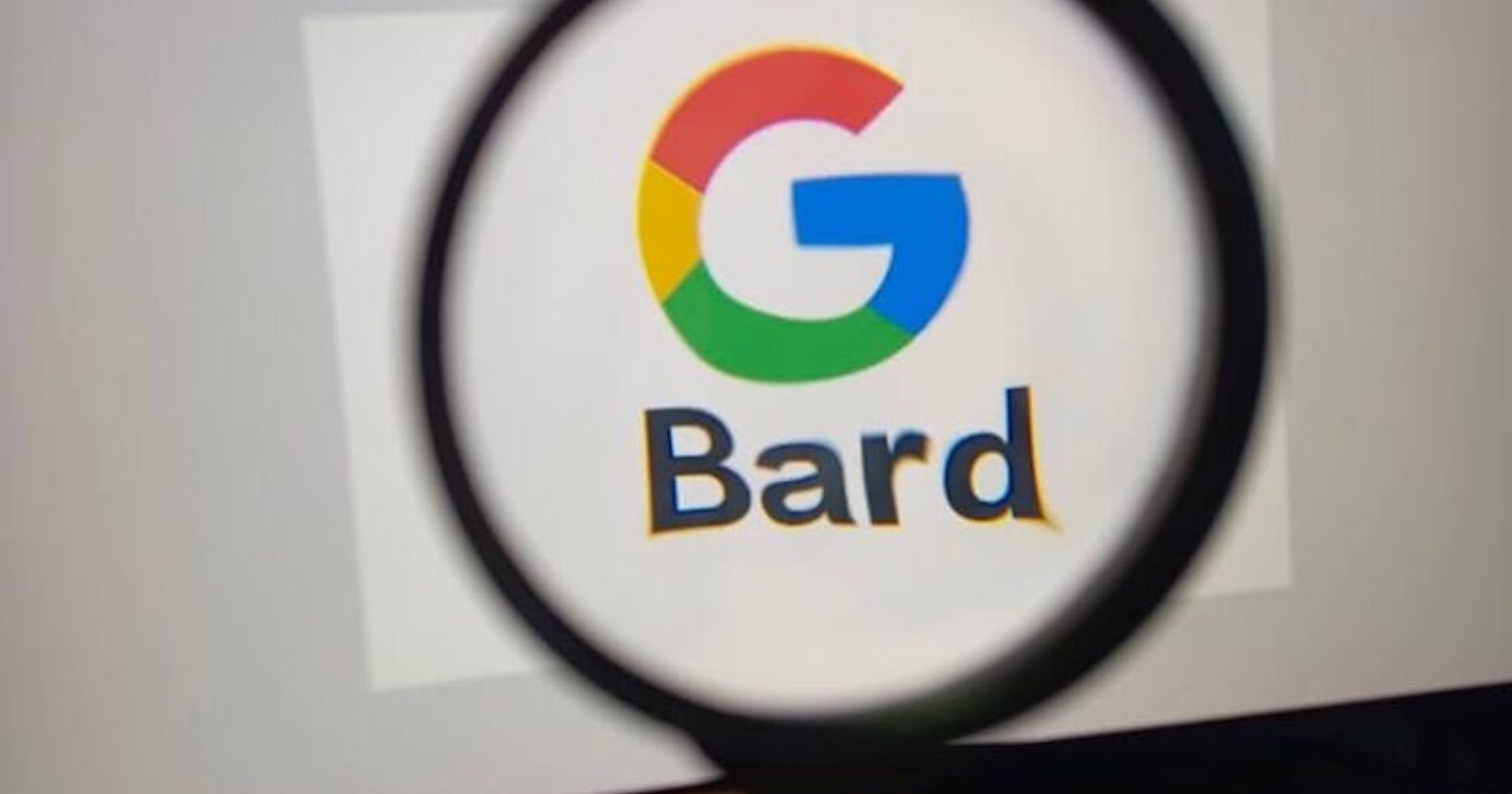Introduction
In the realm of artificial intelligence, Google has once again taken a remarkable leap forward with the introduction of its groundbreaking AI chatbot, Bard powered by LaMD. With its advanced capabilities and seamless integration with Google's ecosystem, Bard opens up a world of possibilities in the realm of conversational AI.
Its exceptional natural language processing capabilities enable more human-like and contextually aware conversations. Bard's multilingual support facilitates global reach, breaking down language barriers and enabling effective communication with users worldwide.
This article delves into the depths of Bard, exploring its features, applications, and potential it holds for revolutionizing the way we interact with technology.
How Google Bard works
Google Bard is trained on a massive dataset of text and code. This dataset includes books, articles, code, and other forms of text. Bard is trained using a type of machine learning called deep learning that uses artificial neural networks to learn. Artificial neural networks are inspired by the human brain and are made up of many layers of interconnected nodes. Each node in a neural network can learn to perform a specific task. Bard uses deep learning to learn how to understand and respond to user queries.

Different ways Bard can be used
Even though Google Bard is still in its experimental stage, it is capable of a lot more than the average AI chatbot. Let's explore a few of Google Bard's exceptional capabilities!
Answering questions: Just like every other AI chatbot, Bard can answer your questions but with an added advantage. Bard can answer questions about real-time happenings like the weather and current news, unlike some other AI chatbots. For example, you can ask Bard about the weather, current events, or historical figures.

Generating content: Bard can be used to generate creative content in text format, including emails, scripts, articles, poems, code and even musical pieces.
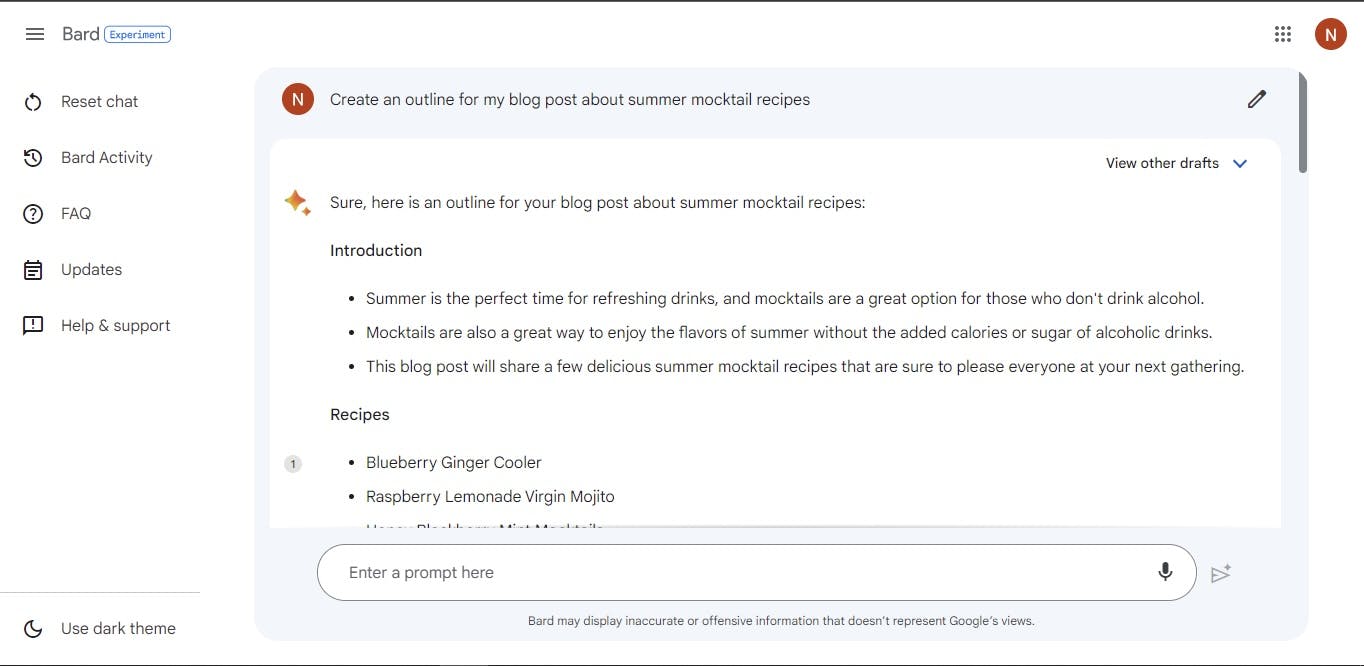
Language translation: By virtue of its connection to Google’s ecosystem, Bard can translate over 100 languages. It can translate both text and audio inputs.
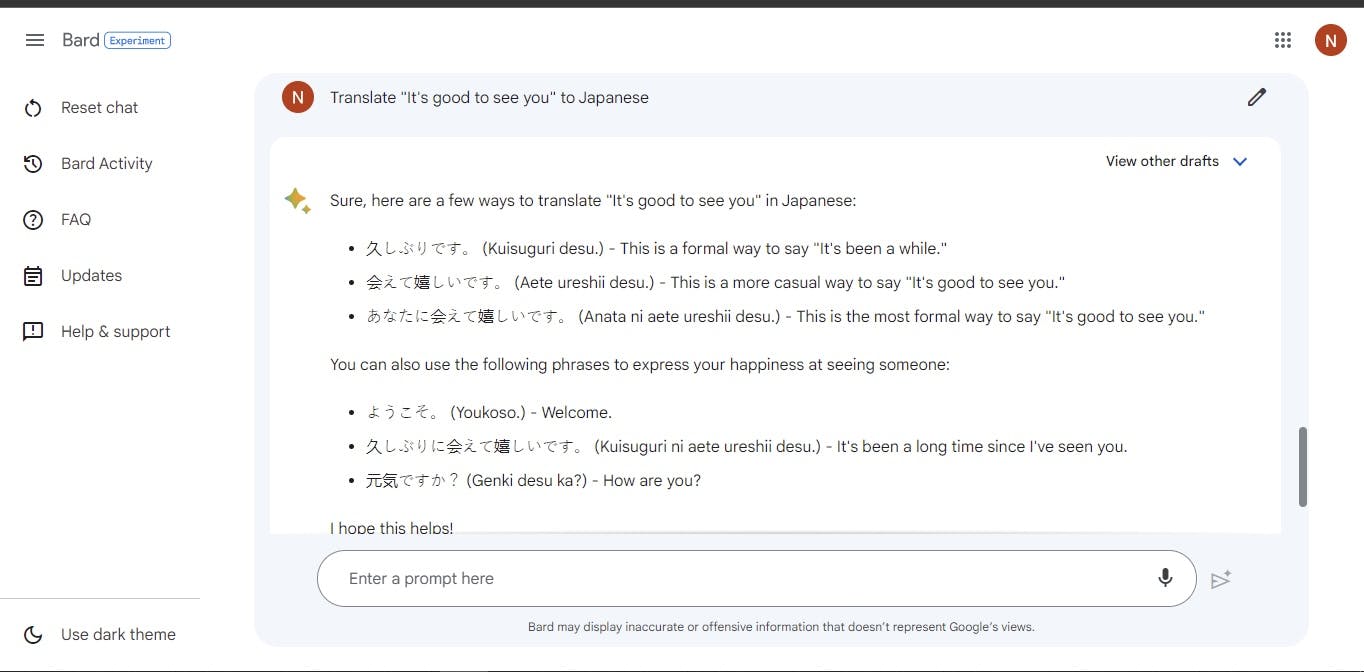
Personal assistant: Bard can be used to help perform or assist with tasks such as drafting and sending emails, making reservations, booking flight tickets, setting reminders and managing schedules.
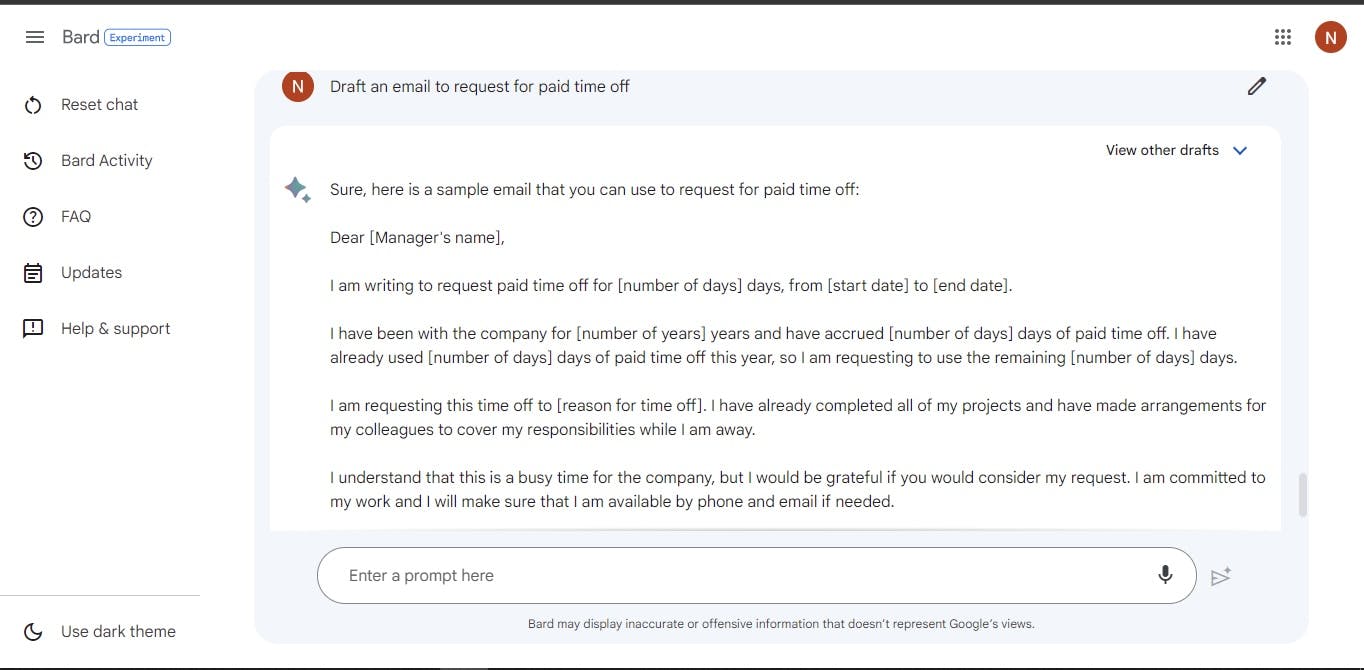
Voice-activated tasks: Bard can also be used to perform a variety of tasks using voice commands. These tasks can include playing music, setting reminders or alarms, providing news and weather updates, and controlling smart home devices.
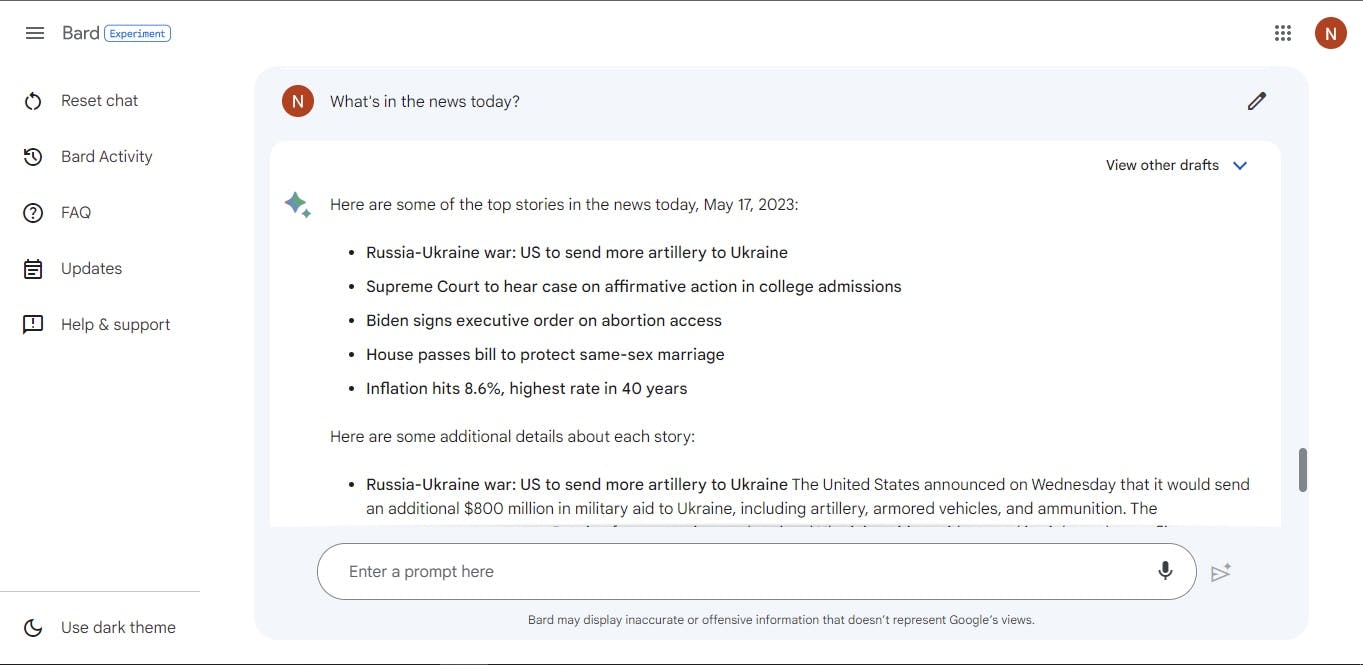
Note: Voice prompts are currently unavailable for Bard on mobile browsers.
Integration into Google’s products
One important factor that improves Bard's usefulness and broadens its appeal is the integration of Bard into Google's products. To offer a seamless user experience, Bard makes use of the extensive ecosystem of Google's products.
The following are some instances of how Bard is included in Google's products:
Google search: Bard allows users to search for information, fact-check its responses using the "Google it" button, and engage in interactive conversations to get more precise search results.

Google Assistant: Bard works in collaboration with Google Assistant to perform voice-activated tasks and enable personalized assistance across different devices.
Gmail: Bard's integration with Gmail enables it to assist users with drafting, sending and managing email workflows.
Google Maps: Navigation experience is improved by the integration of Bard with Google Maps. Through interactive dialogues, users can request directions, details about locations, and even obtain real-time traffic updates.
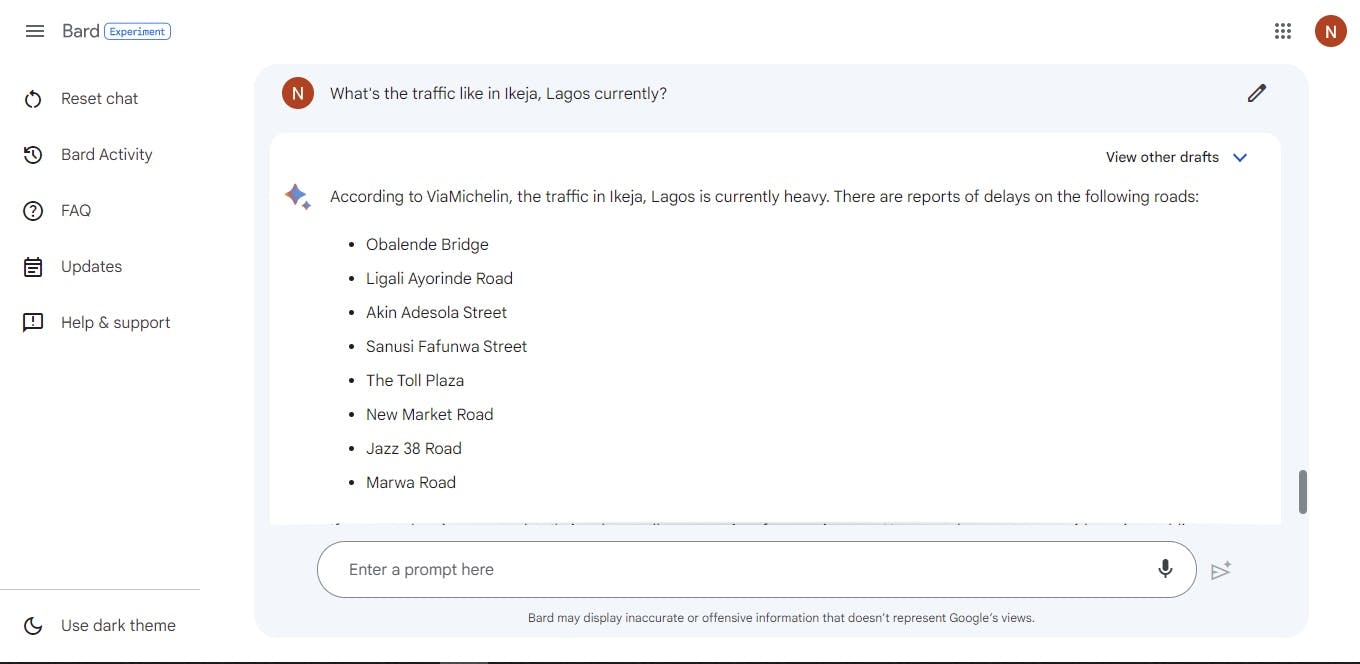
Google Calendar: Users can manage their schedules more easily with the help of Bard's integration with Google Calendar. It can help with organizing and scheduling appointments, setting reminders, and delivering information about impending activities.
The future of Google Bard
The future of AI and chatbots may be heavily impacted by Google Bard. Bard can improve user experiences, enable personalization, expand applications across industries, facilitate collaboration with human agents, and raise ethical and privacy concerns thanks to its sophisticated natural language processing skills and easy integration with Google's ecosystem. It advances natural language understanding by pushing the limits of conversational AI. Bard's discoveries are likely to influence the direction of chatbots and AI, altering the way humans interact with technology, providing individualized support, and igniting debates about ethical AI use.
Challenges users face when using Bard
Since Bard is still in its experimental stages it is expected that users will face some challenges while interacting with the chatbot. Here are some common issues that users might face:
Limitations in knowledge: While Bard has access to a vast amount of information, it may not know about highly specialized topics. Users might find Bard’s responses insufficient if they are seeking in-depth information on a specific topic.
Inability to store responses: Unlike other AI chatbots like ChatGPT, Bard currently only stores the prompts a user submits, and not the responses it provides. So if a user happens to close the application or leave the tab idle for a long time, all the responses the user received would be lost.
Privacy and Data concerns: Interacting with Bard requires sharing personal information or data with the AI system. Some users may have ethical concerns about privacy, data security and how their information is being used.
Google is actively addressing these issues to improve Bard and make sure it adheres to the greatest standards of moral behavior, accuracy, and user satisfaction. The ongoing development and improvements to Bard sim to overcome these challenges and deliver an AI chatbot that is both reliable and valuable to its users.
Conclusion
Overall, Bard can be a valuable tool for individuals to access information, complete creative tasks, and be entertained. It can help businesses to increase productivity, improve customer service, and develop new products and services.
As Bard continues to learn, it will become even more useful to users.
Thanks for reading.

